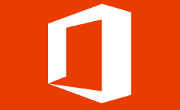We’re big fans of Microsoft products, but some of their product names, to be blunt, are confusing. A lot of that confusion is caused by programs for personal use and business use being called very similar names (like OneDrive and OneDrive for Business and Skype and Skype for Business).
Typically, the “Business” version of anything is the consumer version of the same product with added features. But in some cases, they’re actually two completely separate products. The worst culprit is the title “Office 365”—especially Office 365 Personal, Office 365 Home, and Office 365 for Business.
At PTG, we do a lot of Office 365 migrations. We hear from a handful of small business owners/CEOs a week that think they already have Office 365 for their business—but have actually purchased the Home version. About 75% of those aren’t even aware that there was anything other than the version of Office 365 that they bought! This isn’t really through any fault of theirs—the names are just confusing!
But first, let’s look at what Office 365 is. Office 365 is Microsoft’s set of cloud-hosted services. There are multiple services you can subscribe to, depending on your Office 365 plan: Exchange (email), SharePoint (company intranet), OneDrive (cloud storage), Skype (instant messaging), and Office Pro Plus (downloading the Office suite to your desktop) just to name a few. All of these services use the Software as a Service (SaaS) model of small monthly payments, rather than one-time, lump sum payment.
Users have the ability to pick and choose exactly which services they wish to subscribe to, and pay monthly or yearly based on their subscription. What most people don’t realize, though, is that Office 365 has three main categories: Personal, Home, and Business.
Office 365 Personal
This version is designed for an individual user, because only one person is licensed to use the software with this version. Office 365 Personal includes Word, Excel, PowerPoint, Outlook, OneNote, Publisher (for PC only), Access (for PC only), OneDrive, and Skype.
You get 1 TB of OneDrive Cloud storage for one user, and you’re allowed up to 60 minutes per month for Skype. With the Personal version, you can install the software on one computer, one tablet, and one phone. There is also a reduced-cost student version.
Office 365 Home
This version is the one that many small business owners confuse with what’s advertised in Office 365 Business. The Home version is exactly the same as the Personal version, but you’re allowed to install the software on up to five computers, five tablets, and five phones. Each user is also given 1 TB of OneDrive Cloud storage and 60 minutes (each) of Skype time.
The Home software license does not cover commercial use, and you won’t have access to an Exchange server (for email addresses at your website domain), SharePoint (internal company website), or Microsoft Teams (for team communication and collaboration) with this version.
Office 365 for Business
There are actually several plans within Office 365 for Business, and you can mix and match plans based on specific employee needs, too.
The basic Office 365 Business plan looks like Office 365 Home, except it’s licensed for commercial use, and up to 300 people are allowed to use the software that’s installed on the up-to-five computers/tablets/phones.
Office 365 Business Premium is a popular plan that includes an Exchange servers, SharePoint, OneDrive for Business, Microsoft Teams, and Yammer. You get a 50 GB of email storage, and you can install the software on up to five computers/tablets/phones. You can host unlimited HD video conferencing meetings for up to 250 people with Skype for Business, let customers schedule appointments online with Microsoft Bookings, and manage tasks and teamwork with Microsoft Planner.
If you don’t need the Microsoft Office applications but you do want enterprise-level email and SharePoint, you can go with Office 365 Business Essentials, which also includes OneDrive for Business, Skype for Business, Microsoft Teams, and Yammer.
With the E5 plan of Office 365 for Business, you get everything included in Premium, plus Microsoft Access, Power BI for business intelligence analytics, additional security features and compliance protection, Cloud-based call management, and PSTN conferencing to allow invitees to join Skype for Business meetings by dialing in from a landline or mobile phone.
Office 365 for Business is typically purchased through a Microsoft Partner (like us!), but can also be purchased through some websites. You’ll want to look at what each Office 365 for Business plan offers, because the cheapest (Essentials) is actually slightly less expensive than Office 365 Home, so using the Home plan isn’t necessarily going to save you money.
{{cta(‘763fdd77-73d9-44bd-9f46-b52d41d7e105’)}}
